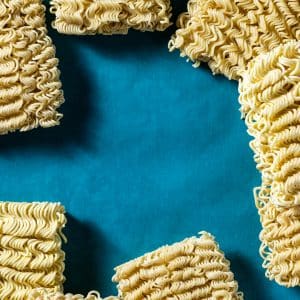It’s Monday morning and a fresh salad sounds like the perfect antidote to the past weekend’s many indulgences. Fast-forward to Wednesday evening; the mid-week slump has you in its grips and all you are craving is a good hunk of cheese or a greasy burger (extra bacon, please). Despite what you’ve been made to believe, it’s not a bad thing for your body to crave fatty foods; fat forms part of the three integral macronutrients your body requires to function at its optimal level. Thanks to Dr Tim Noakes, many advocates of strictly low-fat diets have come to see the light. We take a look at how avoiding fat in your diet, may lead to serious health consequences, beyond your waistline.
By Jana du Plessis
Fat focus
Fat contains more calories per gram than carbohydrates or proteins. Fat weighs in at around 9 calories per gram, while protein and carbs tie at around 4 calories per gram. Despite the higher calorie content, we should still make adequate space for fat in our diet. Most people are afraid of fat, having been convinced that fat is to blame for weight-gain. If you’re trying to drop a dress size or lose a little extra weight for summer, we suggest health should be your number one priority. If you’re eating balanced meals regularly, healthy weight-loss will naturally follow. Fat is absolutely essential to our basic bodily functions, and by skipping out on such a valuable macronutrient, we may not be giving our bodies all they require to function and thrive.
Fat Facts
Fats are crucial to encouraging the development and health of our cells. All the important messages that our cells send to our nervous system, are delivered with the help of fat. Our hormones are also regulated by fat cells, making it especially vital for women to consume enough fat for a healthy, happy and functioning body. Fat include provides insulation to our vital organs and enables our bodies to absorb fat-soluble vitamins such as vitamins A, D, E and K. Ultimately, fat is important! It has been shunned as the dreaded cause of our expanding bellies, but fat – in moderation – allows for a whole bunch of healthy mechanisms to work well within our bodies.
Fat friends
As important as fat is to include into our diets, the type of fat also matters. Try to avoid hydrogenated or trans fats; these have undergone extreme chemical processes, making them potentially harmful to our bodies. These bad fats are most commonly found in processed foods, fried foods, pre-made baked goods and margarine. Rather opt for unsaturated fats and omega 3 and 6 fatty acids; these are found in olives, avocados, plant-oils, oily fish, nuts and seeds. High cholesterol-sufferers should first consult with their physician on the types of fats they should include in their diets.
What are your thoughts on including more healthy fats in your diet? We’d love to hear your comments!




